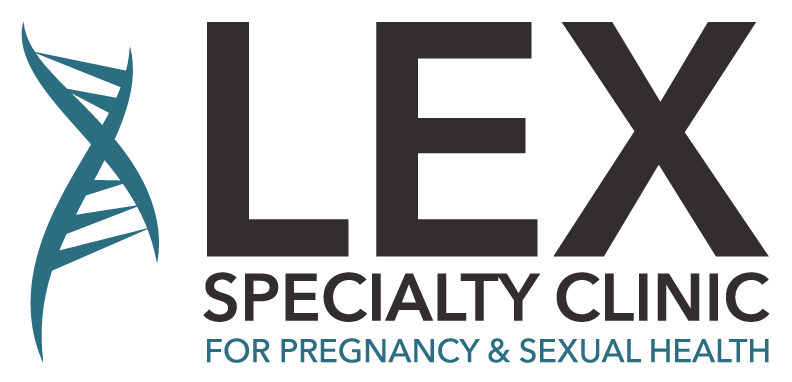This guide addresses the most common questions about the abortion pill, also known as medical abortion, chemical abortion, RU-486, or at-home abortion. Read on to explore the facts, risks, and where you can go to get help.
What Is the Abortion Pill, and How Does It Work?
The abortion pill involves two medications: mifepristone and misoprostol.
- Mifepristone is taken first, usually in a clinic. It interferes with progesterone receptors and prevents the pregnancy from developing.[1]
- Misoprostol, taken 24 to 48 hours later. It triggers uterine contractions to expel the developing embryo. This process is typically completed at home, though medical supervision is recommended to ensure safety.
How Far Along Can You Take the Abortion Pill?
The abortion pill is FDA-approved for use up to 10 weeks of gestation (measured from the first day of your last menstrual period).[2]
An ultrasound is the most accurate way to confirm gestational age. Knowing the exact stage of pregnancy ensures you qualify for the abortion pill and detects potential complications, such as miscarriage or ectopic pregnancy.
At Lex Specialty Clinic, we offer free ultrasounds to confirm your gestational age. Contact us today to schedule an appointment.
How Long Does the Abortion Pill Process Take?
The abortion pill process typically spans several days. As mentioned earlier, mifepristone is taken first, followed by misoprostol 24 to 48 hours later. Cramping and bleeding usually begin within a few hours.
Bleeding may continue for 9 to 16 days, though some women experience light bleeding or spotting for up to 30 days.[3]
You should also attend a follow-up visit with a healthcare provider, typically 7 to 14 days after taking the abortion pill. It’s essential to confirm the procedure was successful and to check for complications like incomplete abortion or infection.[4]
Is Plan B the Same as the Abortion Pill?
A common question is whether Plan B (emergency contraception) is the same as the abortion pill. The answer is no.
Plan B, often called the morning-after pill, works to prevent pregnancy by delaying ovulation or inhibiting fertilization. If fertilization does occur, it may prevent the embryo from attaching to the womb. On the other hand, the abortion pill terminates an existing pregnancy.
Where Can You Get the Abortion Pill?
In states where abortion is legal, certified healthcare providers can prescribe the abortion pill. Some clinics require the first dose (mifepristone) to be taken on-site, while others may provide both medications for home use, depending on state regulations. Certified pharmacies may also dispense the abortion pill, but a prescription is required.
Important: Never order abortion pills from unregulated online sources or foreign pharmacies. The FDA warns that such medications may not meet safety standards, potentially containing incorrect dosages or harmful substances.[5]
Can Your Gynecologist Prescribe the Abortion Pill?
In states where abortion is legal, a certified gynecologist or other qualified healthcare provider can prescribe the abortion pill after confirming eligibility. They will determine gestational age with an ultrasound and screen for contraindications, such as[6]:
- Miscarriage risk or ectopic pregnancy (a pregnancy outside the uterus)
- Allergies to mifepristone or misoprostol
- Blood clotting disorders
- Use of an IUD (which must be removed before the procedure)
- Certain medical conditions, like severe anemia or liver disease
How Much Does the Abortion Pill Cost?
The cost of the abortion pill varies, typically ranging from $150 and $1,100[7], depending on the provider and location. This may not include additional expenses like ultrasounds, blood tests, follow-up visits, or medications for pain or infection.
What Are the Risks of the Abortion Pill?
Like any medical procedure, the abortion pill carries risks, which should be carefully considered. Key risks include[8]:
- Incomplete abortion: In some cases, the pregnancy tissue is not fully expelled, requiring surgical intervention.
- Prolonged bleeding: Heavy bleeding lasting beyond the expected timeframe may indicate complications.
- Infection: Though rare, infections can occur and require prompt treatment.
Discussing these risks with a healthcare provider ensures you’re fully informed. At Lex Specialty Clinic, our compassionate staff can provide information and support as you navigate your decision.
Does the Abortion Pill Hurt?
Everyone tolerates pain differently, but on average, women report a higher level of pain than they expected. They describe the pain as worse than menstrual cramps and compare it to labor contractions.[9]
Abortion Pill Information in East Central, Minnesota
Navigating an unplanned pregnancy can feel overwhelming, but you don’t have to face it alone. At Lex Specialty Clinic, we provide a safe, non-judgmental space to explore your options. We’re here to help you make an informed decision with clarity and confidence.
Give us a call at (763) 689-4319 or schedule an appointment online. All services are confidential and free of charge!
Please be aware that Lex Specialty Clinic does not provide or refer for abortion services.
Sources
- Danco Laboratories, LLC. (2022). MEDICATION GUIDE: Mifeprex. https://www.accessdata.fda.gov/drugsatfda_docs/label/2011/020687s014lbl.pdf
- FDA. (2025, February 11). Questions and Answers on Mifepristone for Medical Termination of Pregnancy Through Ten Weeks Gestation. https://www.fda.gov/drugs/postmarket-drug-safety-information-patients-and-providers/questions-and-answers-mifepristone-medical-termination-pregnancy-through-ten-weeks-gestation?sm_guid=NTU1NzgyfDYzMDE1OTM2fC0xfGppbUBha2ZhbWlseS5vcmd8NTY4OTI4MXx8MHwwfDE5OTYwMDk4OHwxMDg2fDB8MHx8NTQ3NzI2fDA1
- See source #1.
- See source #1.
- See source #2.
- See source #1.
- As advertised by abortion providers in August 2025.
- What is the Abortion Pill? (2024, January 10). Pregnancy Decision Line. https://pregnancydecisionline.org/what-is-the-abortion-pill/
- Georgsson, S., & Carlsson, T. (2019). Pain and pain management during induced abortions: A web-based exploratory study of recollections from previous patients. Journal of Advanced Nursing, 75(11), 3006–3017. https://doi.org/10.1111/jan.14132

